28+ Sample Business Contracts
-
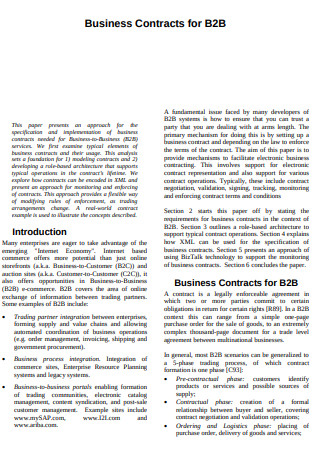
Business Contracts for Business to Business
-
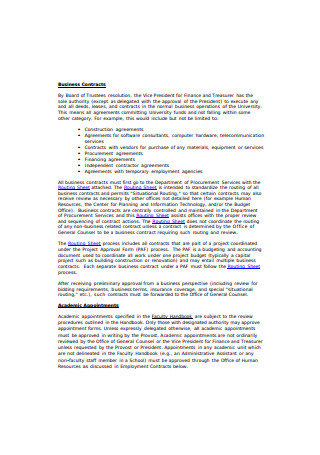
Business Contract Sample
-
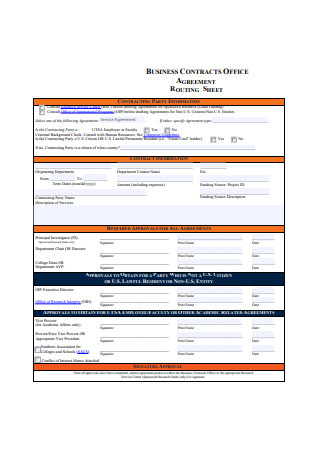
Business Contracts Office Agreement Routing Sheet
-
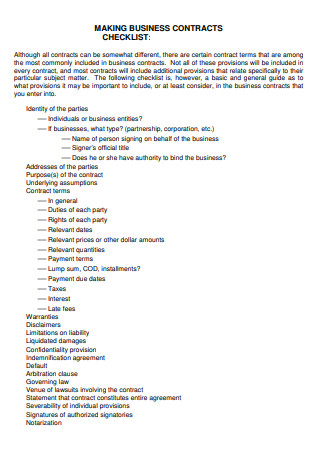
Business Contract Checklist
-
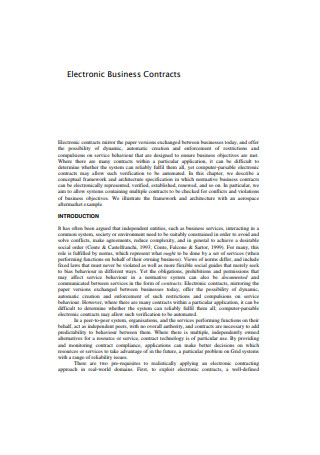
Electronic Business Contracts Sample
-
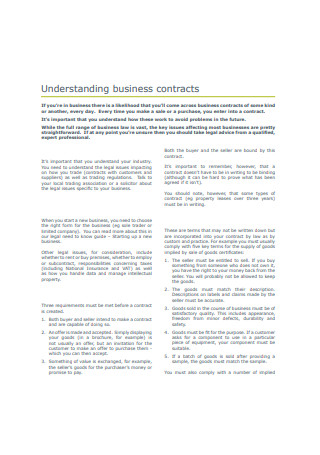
Understanding business contracts Sample
-
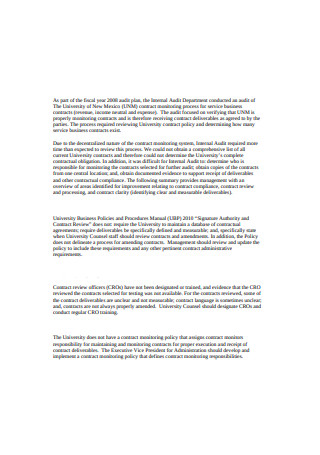
Sample Business Contracts Audit
-
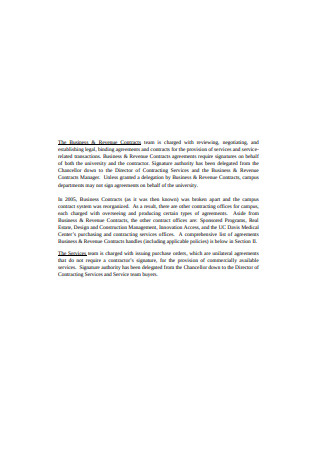
Business and Revenue Contract Sample
-
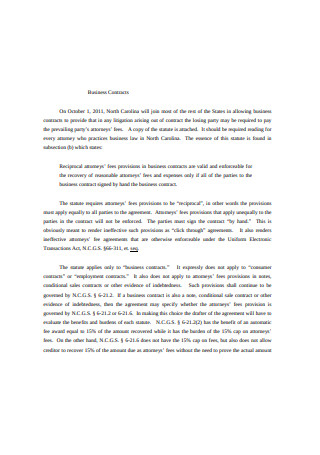
Simple Business Contracts
-
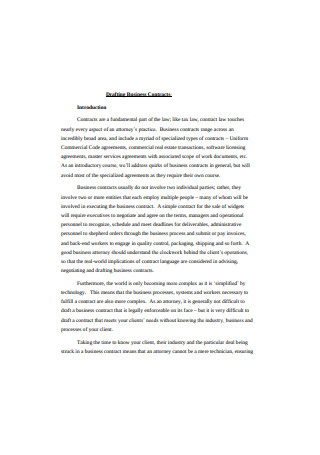
Drafting Business Contract Sample
-
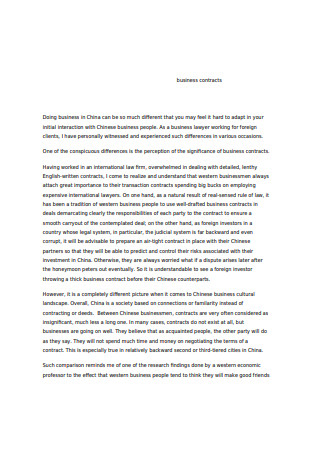
Formal Business Contract
-
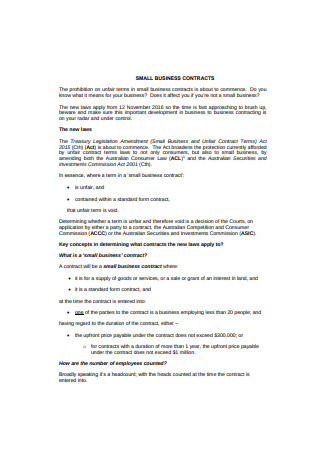
Small Business Contract Sample
-
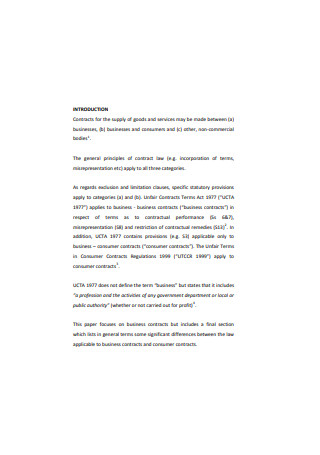
Commercial Business Contract Sample
-

Small Business Contract Handbook
-
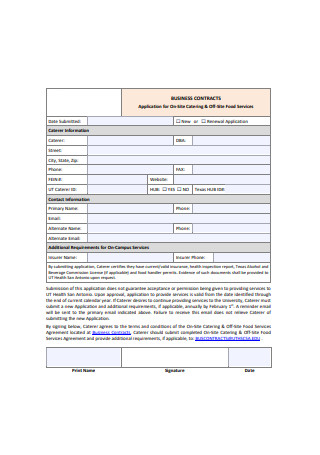
Sample Business Contract Application
-
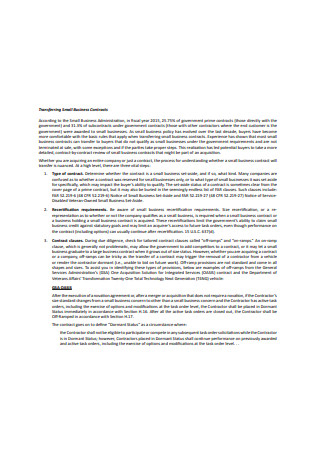
Transferring Small Business Contracts
-
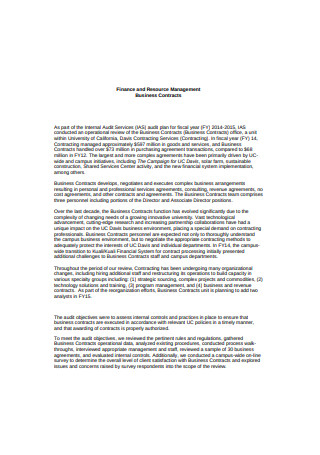
Finance and Resource Management Business Contract
-
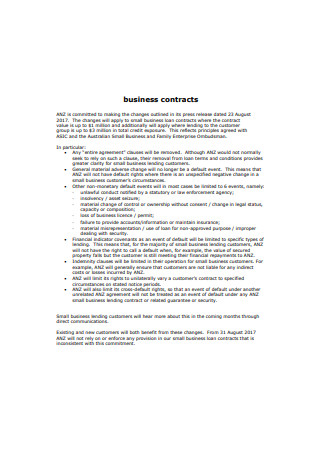
Standard Business Contract
-
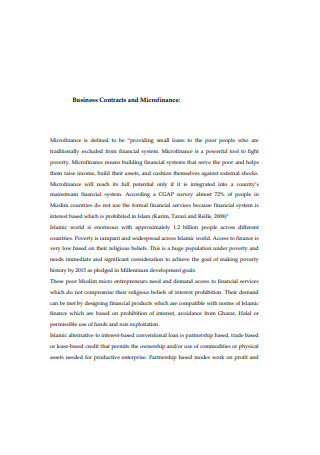
Sample Business Contracts and Microfinance
-
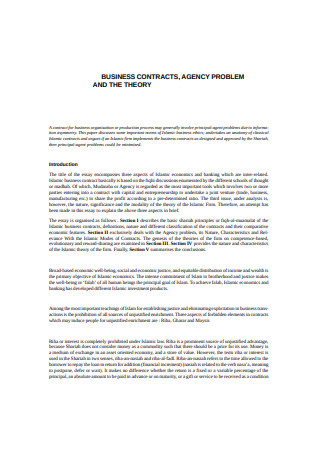
Agency Business Contract
-
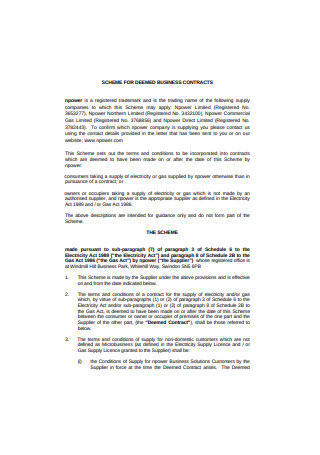
Scheme for Deemed Business Contract
-
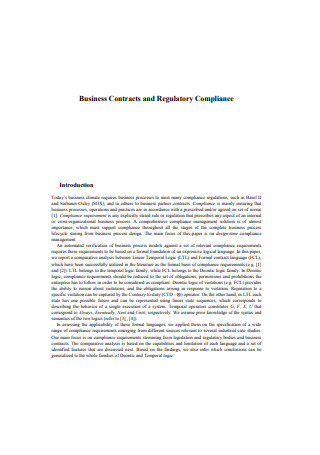
Business Contracts and Regulatory Compliance
-
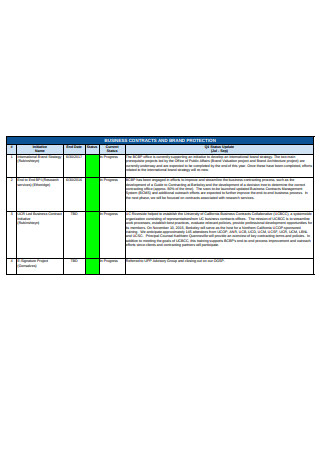
Simple Business Contract and Brand Protection
-
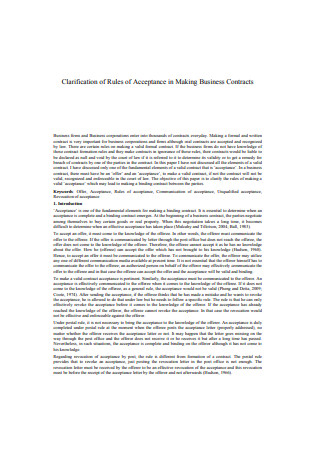
Clarification of Rules of Acceptance in Making Business Contracts
-
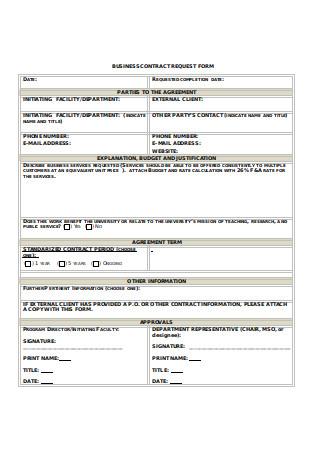
Business Contract Request Form
-
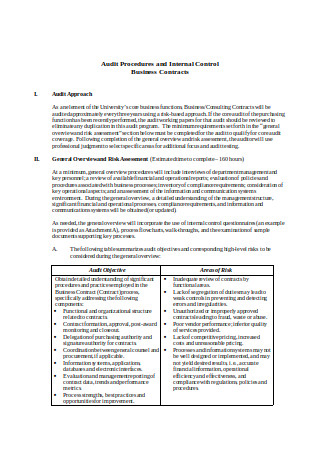
Audit Procedures and Internal Control Business Contracts
-
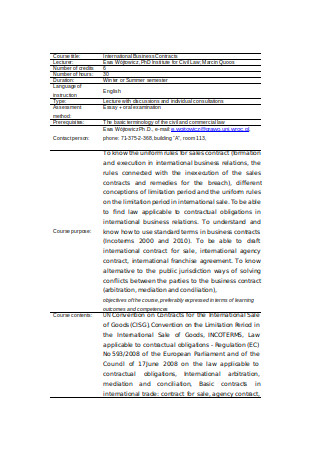
International Business Contracts
-
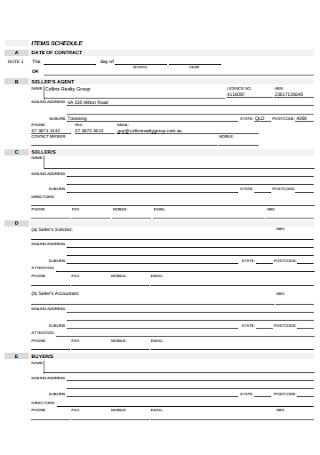
Business Contract Sale
-
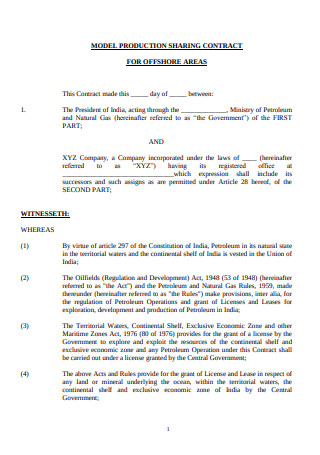
Production Sharing Contract
What Is a Business Contract?
Dealing with contracts is all part of running an enterprise. Business contracts are defined as legally binding agreements between two or more parties in a trade. It protects the parties from being taken advantage of by establishing the terms and conditions that they are bounded by. By spelling out what is expected and required of each party, those involved will be held accountable for their actions.
Though some business contracts can be verbal or implied, they usually come in written form to open a window of opportunity for either party to take legal action in the event of a dispute. Businesses of all types and sizes thrive on contracts, so it’s easy to see why so much time and attention are invested in its creation.
“People aged 18–24 are more likely to sign contracts without reading them.” (Source: CreditDonkey)
“46.2% of 720 contract professionals said they had a contract process for longer than four weeks.” (Source: SpringCM)
Types of Business Contracts
Contracts are an essential part of doing business. Although some businesses tend to use the same type of contracts for many purposes, there are specific kinds of contracts designed for every situation. These contracts are made to meet the exact needs of a business in carrying out its intentions.
How to Write a Business Contract
Having a business contract for each time you enter into a deal gives you the chance to properly communicate your expectations and safeguard yourself and your partners from possible disputes. So, if a problem arose, you could easily take your issues to court and have them settled before a judge. But a strong contract must discuss the rights, responsibilities, and remedies of the agreement for all parties to comprehend. With that said, it’s important to get in terms with the fundamentals of contract writing.
Step 1: Identify the Parties Involved.
These parties pertain to the individuals or entities involved in the agreement, such as the name of the person or the organization entering the deal. However, you might want to avoid using acronyms that may cause you to identify a party falsely. Instead, be sure to list the full names and titles of the concerned parties in their correct spelling. You need to indicate who is responsible for doing what in the arrangement so it’s clear as to who is bound by the contract. In addition to their legal names, physical addresses may be necessary for future correspondence.
Step 2: Spell Out Each Party’s Obligations.
Describe what is being exchanged in the agreement. Every contract must specify the rights and responsibilities of each party to establish who is required to do what. These can vary depending on the type of business you run and the nature of the arrangement. These should be laid out in complete detail to leave little room for wrongful interpretation. If you decide to modify an existing term or to add a new one at the last minute, an amendment must be written to update the contract and keep everyone on the same page.
Step 3: Describe the Terms of Payment.
In business, deals are formed from the desire to provide goods and services in exchange for money. If one party is not compensated for performing their obligations, legal action may be taken against the opposing party. Thus, payment terms for the transaction must be defined in detail. This includes the total amount due, the initial deposit amount, payment deadlines, and the modes of payment accepted. These factors often differ from case to case, as some projects require regular payments while others demand the full amount once the contract is in effect.
Step 4: Review Intellectual Property Rights and Time Frames.
One way to monitor the performance of each party is to set a timeline of events. The contract must describe all completion deadlines and each party’s responsibilities throughout the duration of the agreement. This includes the delivery of goods, the final deadline of completion, and several progress meetings in between.
Step 5: Define Contract Violations and Consequences.
Regardless of how careful you are in deciding who to enter into an agreement with, there’s always a chance you’ll encounter a few problems with your client or partner. A breach of contract occurs when one or more parties fail to honor any promise that forms all or part of the agreement. When this happens, it only makes sense to terminate the contract and have the other party pay for the damages incurred. Small breaches usually require minor settlements, while significant or material breaches lead to severe consequences in accordance with the contract’s terms. It’s also a good idea to set out the circumstances under which the parties may terminate the contract without violating any provisions.
Step 6: Include a Dispute Clause.
When a problem arises, attempting to settle the issue rather than imposing an immediate termination can be a money-saving alternative. A dispute resolution clause can help parties properly resolve disagreements before resorting to legal action. Formal court proceedings can be costly and time-consuming to undergo, so establishing the terms for which the dispute shall be handled may offer you a second chance to continue operations.
Step 7: Sign and Date the Contract.
Contracts take effect as soon as they are signed and/or dated by the concerned parties. If its effective date is not indicated in the document, it goes into effect on the time it was signed by the entity or individual it was offered to. But if the signature is not dated, then the contract will take effect once it leaves the hands of the signee. Parties are required to sign the contract to denote that they have understood and agreed to what is stated in the agreement.
Business Contract vs. Business Agreement
Contracts and agreements typically foster the business relationship between two parties. While they may function similarly, these legal documents possess distinctive characteristics that differentiate one from the other. Knowing their key differences will allow us to enter into a deal that binds us legally to a mutual promise.
A business contract formally specifies the rights and obligations of the parties involved in a relationship. It contains an offer and acceptance, a consideration, mutual consent and capacity, and a legal objective. The purpose of the contract must also adhere to public policy to be legally valid. It is typically written and registered to serve as evidence if a dispute arises. Once the contract is signed, the parties are legally compelled to perform their part of the commitment.
A business agreement, on the other hand, is less formal than the average contract. It outlines the terms of relations between parties but lacks at least one of the necessary elements of a basic business contract to make it enforceable in the court of law. It also covers a relatively broader scope of an arrangement but does not create a legal obligation that parties are required to perform.
The Dos and Don’ts of Business Contracts
No business can achieve success without a strong foundation for it to grow. From initial startup to market development, contracts help protect your business interests by clarifying arrangements and partnerships for better comprehension. Businesses of all sizes rely on contracts to conduct their day-to-day operations. But because of the complexity, value, and risk of these legal agreements, it’s important to know what to do and what not to do when drafting your terms.
The Dos
1. Do see to it that the person you are dealing with has the power to bind the business.
Make sure you’re discussing matters with the person who has the authority to make crucial decisions in the other party’s behalf. Companies often designate specific individuals to deal with these discussions in place of the director. Every decision made during a negotiation can be crucial to the final agreement. Otherwise, you’re bound to face a few complications later on.
2. Do use plain language.
You want to avoid using technical language as much as possible. If you’re going to use jargon for the sake of sounding smart, you’re better off without it. Excellent communication is vital to convey your points in a legal agreement, as misinterpretations may lead to problems in terms of how the contract is understood. Speaking in legalese is not an inevitable part of contract writing, either. Just because you are making a legal agreement doesn’t mean you’re obliged to draft your contract in Legal English. You also want to review the proper application of conjunctions, as this can drastically affect the meaning of a statement.
3. Do add logical headings to each clause.
Contracts are sometimes lengthier in structure to cover every possible aspect of an agreement. To keep the contract organized, consider applying a heading to each clause. This will make it easier to identify particular provisions in the contract that are being referred to in a discussion. Contract professionals highly suggest numbering each paragraph as well. That way, parties can quickly locate the clause or provision that they wish to emphasize for further evaluation.
4. Do ensure that all agreements are correctly documented.
Agreements and possible contingencies should always be recorded on paper. To avoid confusion, leave nothing vague. Every point that you wish to express in the contract should be made explicit for all parties to grasp. You’d be surprised by how common it is for unclear statements to cause conflict between parties. Not only will this force you to settle for the bare minimum, but it can also strain business relationships in the worst way possible.
5. Do consult with an experienced attorney.
If you have your doubts about the agreement, feel free to discuss them with an attorney that specializes in contract law. While it isn’t illegal to write or enter into a contract in the absence of a specialist, hiring a lawyer will help you eliminate the unknowns of the business contract. The attorney may also review and advise you on the contract for further improvement. This is one way to prevent future disputes from occurring and potentially delaying a project’s completion.
The Don’ts
1. Don’t use long, complex sentences.
Lengthy sentences often make room for ambiguity. While it might seem tempting to expand your thoughts in a five-sentence paragraph, it’s best to avoid the use of unnecessary words and meaningless texts to deliver your message. Break down chunky sections into digestible portions by getting rid of words and phrases that affect the clarity of your statements. As long as your provisions make proper sense, you can leave it as is.
2. Don’t assume that all parties share the same understanding of terms.
How you interpret one thing may mean something entirely different to another. Keep in mind that it is possible to enter into a contract with a business that is not from the same industry as yours. When this happens, it can take a long time for either party to realize the full implications of a term or statement based on what the other party had intended. Thus, don’t be afraid to ask questions or raise concerns regarding statements that are unclear to you. When in doubt, you can include definitions for everyone’s convenience.
3. Don’t agree to oral modifications.
Drafting a contract is a long, stressful process that could take weeks to accomplish. As you go along with this journey, you’re bound to encounter a few alterations here and there to meet the needs of each party. But be wary of these changes; the last thing you want to do is to accept or agree to modifications without putting them on paper. After all, it would be difficult to prove that the agreement even existed without solid evidence to support your claims.
4. Don’t be repetitive, unless necessary.
One way to simplify your contract and avoid a wordy document is to refer back to a previous provision by pointing to its number or heading. This approach can be more efficient as opposed to repeating a clause verbatim, as it preserves the essence of the original statement and maintains clarity.
5. Don’t sign the contract until you are fully satisfied.
Never sign a contract until you have read and agreed to its terms. Once you have entered into a contract, there’s no turning back. You need to make sure that the contract meets your personal requirements and that you are fully aware of the changes that were made to create the final draft. Only after you have reviewed the contract and consulted your lawyer do you confidently sign the document.
Business contracts have become a staple piece in today’s marketplace. Hence, it’s important to widen your knowledge of the basics of contract law and the construction of these agreements for better understanding. If the thought of writing a contract from scratch intimidates you, it won’t hurt to use a business contract template on your first try. You can modify the template to fit your exact needs before it is employed. Using contract templates as well as the guidelines provided is sure to make the experience all the more bearable.
